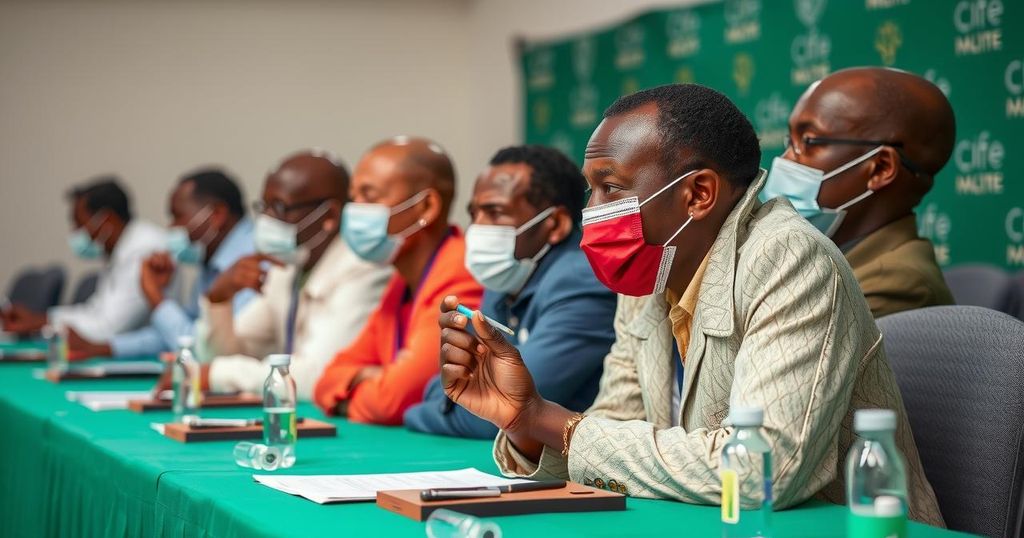Nigeria to Host Regional Summit on Lassa Fever Vaccine Development

Nigeria will host a regional summit on January 15 to develop a Lassa fever vaccine, addressing a significant public health threat in the country. With thousands of suspected cases and fatalities recorded, this meeting aims to improve healthcare responses and emphasize the need for cross-sector collaboration to enhance health outcomes and social welfare.
On January 15, Nigeria will convene a regional meeting dedicated to the development of a vaccine for Lassa fever, as announced by Prof. Muhammad Pate, the Coordinating Minister of Health and Social Welfare. During an appearance on Channels Television’s Sunrise Daily, Minister Pate highlighted Nigeria’s leadership role in West Africa in the consortium of countries focused on researching and introducing a Lassa fever vaccine. This effort is crucial, given Lassa fever’s endemic status in Nigeria, which has recorded thousands of suspected cases and numerous fatalities.
The alarming statistics, as of week 52 in 2024, indicate 9,685 suspected cases of Lassa fever, with 1,187 being confirmed and 191 resulting in deaths across 28 states and 138 local government areas. In response to the ongoing outbreak, the Nigeria Centre for Disease Control and Prevention activated the Lassa Fever Emergency Operations Centre last December, underscoring the seriousness of the public health threat.
Lassa fever, an acute viral hemorrhagic fever caused by the Lassa virus, has the multimammate rat as its primary reservoir. Minister Pate described the wider implications of health on community welfare, asserting that improved health outcomes require coordinated efforts from government entities, individuals, and communities alike. He expressed optimism regarding the establishment of a collaborative framework across different government levels, emphasizing the significance of performance dialogues and accountability.
Highlighting the integral connections between various ministries, Minister Pate noted that education plays an essential role in reducing maternal mortality and promoting vaccination, while the environment, water resources, and security sectors are equally critical to achieving better health outcomes. He acknowledged the challenges posed by insecurity but expressed confidence that defense and military collaboration could enhance vaccination efforts in affected regions.
Addressing social welfare, Minister Pate emphasized that health cannot be viewed in isolation; it is a fundamental component of social protection. He pointed out that lack of access to health services can lead families deeper into poverty. Therefore, investing in health is essential for safeguarding vulnerable populations. Additionally, he advocated for the establishment of a catastrophic health insurance fund through the National Health Insurance Authority to protect against financial burdens due to significant health expenditures.
In conclusion, the upcoming summit reflects Nigeria’s commitment to developing a Lassa fever vaccine, a vital step towards addressing this endemic health crisis. The coordinated approach across multiple sectors and levels of government highlights the interdependence of health, education, and social welfare in ensuring improved living conditions for the Nigerian populace.
Lassa fever is a significant public health concern in Nigeria, posing a risk to the health and well-being of its citizens. Nigeria’s proactive approach in organizing a vaccine development summit underscores the urgency of addressing this health crisis. The widespread impact of Lassa fever, combined with the country’s ongoing challenges in healthcare access and coordination, necessitates a multifaceted strategy involving various government ministries to successfully combat this endemic disease.
In summary, Nigeria is taking crucial steps toward addressing the Lassa fever crisis by hosting a summit focused on vaccine development. The commitment of various government sectors to collaborate on public health underscores the multifaceted approach required to improve health outcomes and safeguard the well-being of Nigerians. By integrating education, environment, and social welfare into healthcare strategies, the Nigerian government aims to enhance the resilience of its healthcare system and protect its citizens from health-related poverty.
Original Source: punchng.com






